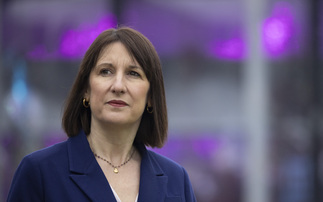British Airways (BA) will appeal a High Court decision which allowed trustees of one of its defined benefit (DB) schemes to grant a 0.2% increase to pensioners.
Last week, British Airways (BA) lost a landmark trial to block its pension trustees' decision to award a discretionary increase in 2013 following a seven week court battle.
Trustees of the Airways Pension Scheme (APS) successfully defended the payment from BA's arguments that the trustees had acted improperly, had acted outside of their powers, and had taken irrelevant considerations into account.
Today, the High Court granted BA permission to apply to appeal to the Court of Appeal, a move that could extend the litigation for at least eighteen months.
The barrister acting for the trustees, Keith Rowley QC, said BA had "made a mountain out of a mole hill".
The airline is expected to appeal on the grounds that the payment was "benevolent" and contrary to the purpose of the scheme. The paperwork is expected to be filed by 30 June, with a court date then expected in late 2018.
At today's hearing BA was also granted an injunction to block trustees from paying the 0.2% increase until the appeal has been heard.
However, if BA is unsuccessful at the appeal, BA will be required to pay damages to individual members of the 0.2% increase plus 2% interest above the base rate.
The trustees extimated approximately 6,100 members will miss out on the increase because of both the prior litigation and upcoming appeal; 3,800 who have already died, and an estimated 2,300 who will die before the appeal judgment is published.
How the case unfolded
June 2010: Government announces plan to move public sector schemes from RPI to CPI, affecting APS due to its link to pension review orders. APS valuation is signed off using RPI
March 2011: Trustees amend the scheme rules to allow them to grant discretionary increases
April 2011: APS is moved to CPI
July 2011: Trustees hold annual general meeting where members voice rage at indexation change
October 2011: Scheme actuary presents a test for discretionary increases, which will likely be passed in 2012
December 2011: A deterioration in the funding position means the test will now fail
March 2012: Trustees vote against awarding a discretionary increase
August 2012: Trustees are presented with a new methodology for granting increases. This test is later adopted by trustees
February 2013: Trustees unanimously agree to award an increase, but set no amount
June 2013: Trustees agree a 0.2% increase for implementation in September. The 2012 valuation is agreed, including RPI assumptions
July 2013: BA and TPR voice concerns over increase, and BA threatens litigation
September 2013: Trustees agree to re-run vote
November 2013: Trustees run four votes on increase, eventually settling on 0.2% again
October to December 2016: BA and APS trustees battle in the High Court
May 2017: Court judges in favour of APS trustees
May 2017: BA says it will appeal High Court ruling








